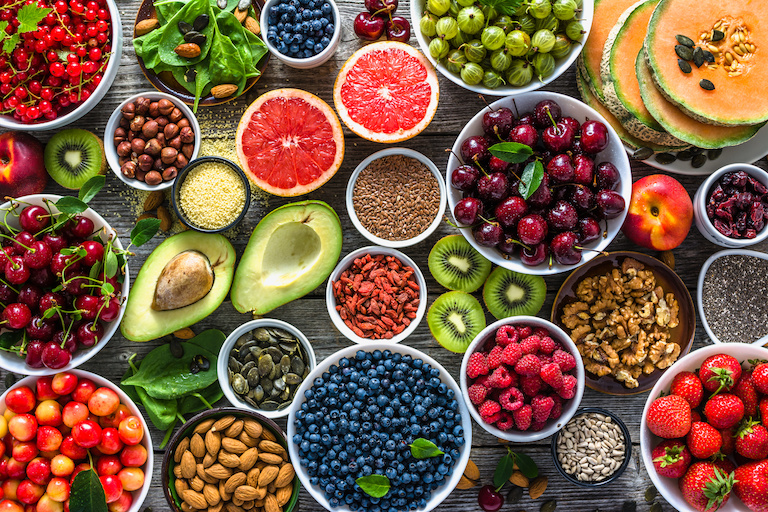Century Park Blog

Cut carbohydrates! Eat more fat! Eat more protein! Go “keto!”
We are bombarded with pictures of men and women with chiseled abs and told “this is how to look like this!” Your worth and happiness is reduced to an aesthetic. Diet strategies like these decrease health, happiness and longevity, but, ironically, we do them because we’re desperate for those things. Societies that are scientifically proven as the happiest, healthiest, and longest living, like Okinawa, Japan, eat 70 to 80-percent of their diet from whole, unrefined carbohydrates. You’re probably asking, “How is that possible?” Their fires burned the brightest, strongest and longest for many reasons, but diet is at the top of the list.
Here is how it works: Imagine your body is a brick house and your metabolism is the fireplace. You live in a cold climate year-round, so the fireplace is necessary to keep you warm. Luckily, you live in a forest, and every day you get deliveries of freshly chopped dry pine wood. Pine burns quickly and cleanly – the perfect fuel for your fire. If you get any extra deliveries, you just store them in your wood shed out back. If it gets full, you throw the extra wood on the fire; your house might get a little warmer, but it’s OK. However, if deliveries of the pine stopped, you’d quickly run out of wood to burn, and, eventually, you would freeze.
Like dry pine to the fire, unrefined, whole carbohydrates are the best fuel for your body. Your metabolism burns them quickly, cleanly and efficiently, and if you eat any extra, they are stored in your muscles and liver as glycogen. They are necessary for every single function of the body as the No. 1 source of vitamins, minerals and fiber. The brain exclusively burns carbohydrates as fuel, and if deprived, the body will slowly decline.
However, the body does not need extra protein. It holds every amino acid tightly for the structure of your bones, muscles and organs and only burns them if you’re in a state of starvation. Your body has no way to store extra protein. Protein has to go through very complex physiological processes to break down, which makes your blood acidic. Consequently, your bones have to release minerals like calcium to neutralize it. The excess acidic protein then filters out through the kidneys and into the urine, a very stressful and harmful process.
Eating extra protein is like someone dropping off a huge, freshly cut tree at your house. You are responsible for chopping it up small enough to be burned. Afterward, it’s still wet inside and full of sap. It’s volatile as it burns and fills your house with lots of smoke and fumes. The only way to reduce the smoke is by taking the bricks out of your own house and throwing them on the fire. The structural integrity of your house is now compromised, and the sap from the tree clogs up your chimney, preventing it from purifying the air in your house. But at least you’re warm, right?
Likewise, the body does not need extra dietary fat. It’s very efficient at recycling it; however, extra ingested fat is very easily stored as body fat. The saturated and trans fats from processed foods and animal products are deposited anywhere and everywhere they can go – in your blood vessels, brain, liver, muscles, etc. Eventually, this causes chronic inflammation and other potentially deadly diseases.
This is like someone dropping off hundreds of packs of peanut butter at your door every day. You can only physically use a few packs per day, but you can’t give the extra away. So you start shoving it anywhere it will go – in your dresser drawers, kitchen and bathroom. Eventually you’ll have so much peanut butter that you’ll have to tape it to the ceiling, under the couch cushions and rug, until the only spot left is your fireplace. Your fireplace would be severely deterred from burning wood, and, eventually, you might freeze.
Many people will gain weight after eating a baked potato topped with pulled pork, cheese, butter and sour cream and still blame the potato because it’s a carb. Or they will eat a sugary breakfast cereal with full-fat milk but still shun fruit because it has sugar. Clearly, the problem is not the potato or the fruit. We need to re-think carbohydrates and stop shunning food that is gifted to us from the earth, including potatoes, tubers, beans, legumes, vegetables, whole grains and fruits. When eaten in their whole, natural forms, they provide the most perfect form of nutrition, satiety and energy. Giving up these foods for short-term benefits means sacrificing your long-term health. Just like dry pine to the fire, whole plant foods provide us fuel for many healthy, happy years ahead!
Don’t fall victim to the latest fads and diet rage; just focus on whole foods as your primary source of calories, and you will be able to eat a quantity that keeps you full and fuels your body for optional weight and longevity. It’s a perfect plan for everyone.



